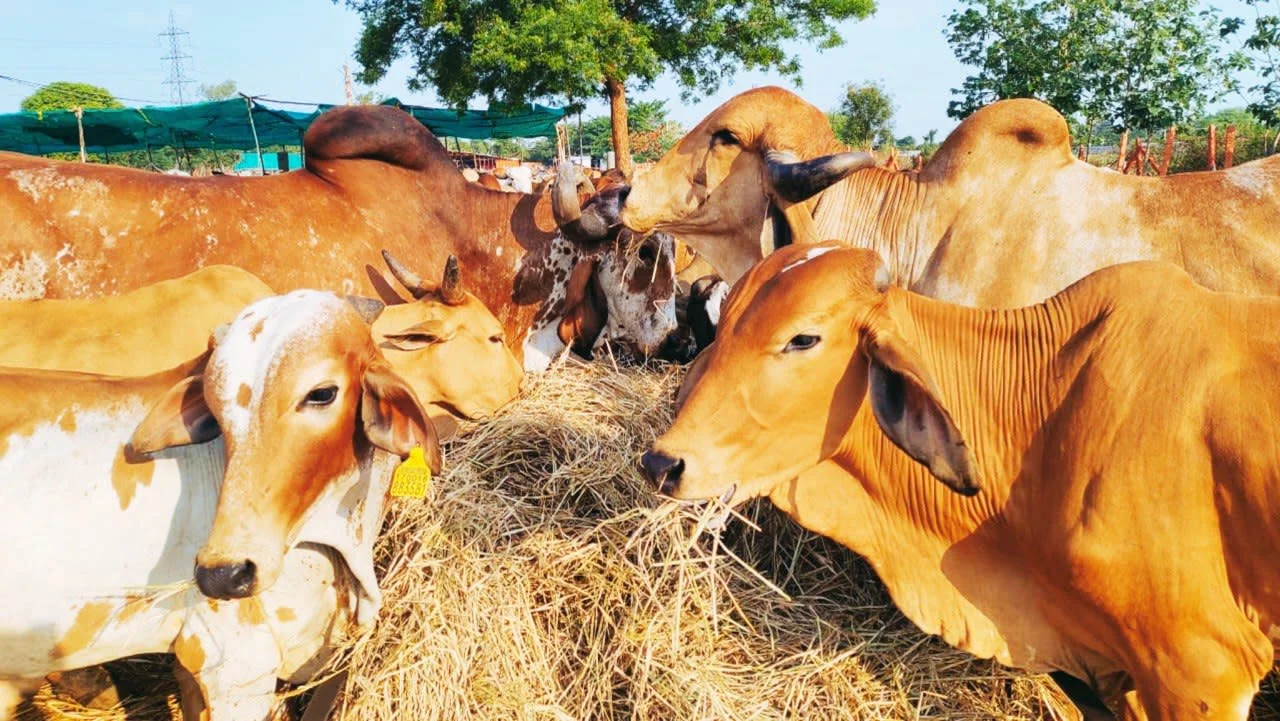Go-seva
Water :-
Amavasya is considered a spiritually charged time when the moon is in alignment with the sun. It symbolizes a fresh start, making it an ideal day for introspection, prayer, and spiritual practices.
Grasses are rich in dietary fiber, particularly cellulose. Fiber aids in digestion and helps maintain a healthy digestive system in cows, which have specialized stomachs designed for breaking down fibrous plant material.
Grasses also contain proteins, albeit in varying quantities depending on the type of grass and its stage of growth. Proteins are essential for muscle development, milk production (in dairy cows), and overall body maintenance.
Water-Soluble Carbohydrates :-
Grass contains carbohydrates, including sugars, starches, and cellulose. These carbohydrates provide energy for the cow's daily activities and metabolic processes.
Cows have evolved to efficiently extract and utilize the nutrients from grass. They possess specialized digestive systems with a four-compartment stomach (rumen, reticulum, omasum, and abomasum) that enables them to digest fibrous plant material like grass effectively.
The process of fermentation in the rumen allows cows to break down cellulose and extract nutrients from grass that would be indigestible to many other animals.


While grasses contain a small amount of oils, these oils can contribute to the cow's energy intake and are important for various physiological functions.
Grasses provide a wide range of minerals, including calcium, phosphorus, potassium, magnesium, and trace minerals like zinc and copper. These minerals are crucial for bone health, muscle function, and overall well-being.
Grasses also contain vitamins, such as vitamin A, vitamin D, and various B vitamins. These vitamins play essential roles in maintaining the cow's health and supporting various bodily functions.
➣ 50 kattas grass Rs. 5000
➣ Half Truck Rs. 15000
➣ Full truck grass Rs. 30000
